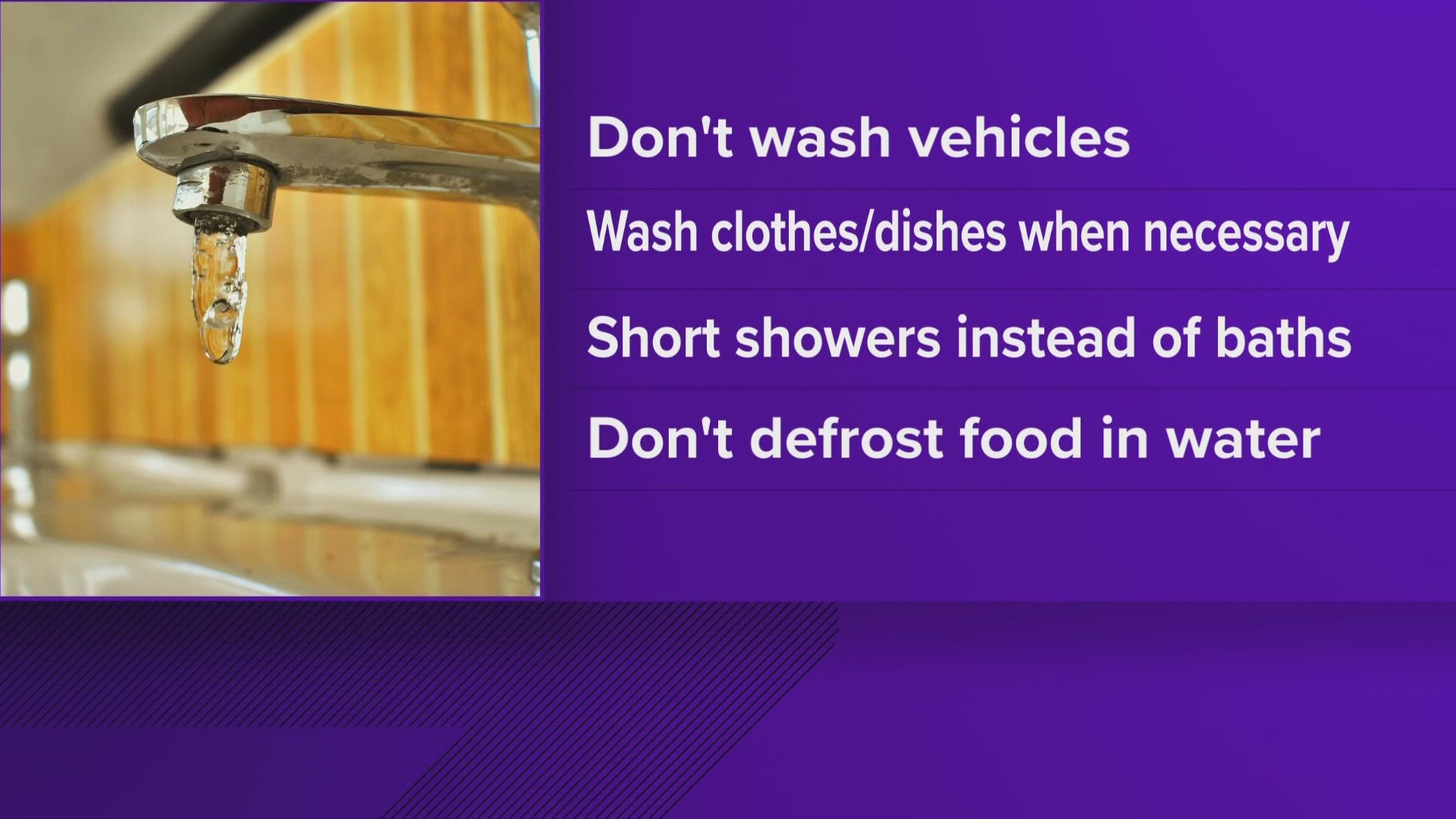MEMPHIS, Tenn. — Memphis Light, Gas and Water (MLGW) said Monday they are starting their "emergency water management" phase of the Drought Management Plan, and are urging all Memphis residents and MLGW customers to limit all non-essential water use.
MLGW said this will let them work to find, fix or isolate main breaks and broken water services.
The utility said all non-essential water uses such as washing cars is prohibited until further notice, and has reached out to area car washes to shut down immediately.
MLGW said residents should limit water usage by:
- Not washing vehicles.
- Only washing dishes and clothes when absolutely necessary.
- Not letting water run while shaving.
- Taking short showers instead of tub baths (Turn off the water flow while soaping or shampooing. If you must use a tub, close the drain before turning on the water and only fill the tub halfway.)
- Don't use water to defrost frozen food
- Sweeping driveways, sidewalks and steps rather than hosing them off.
Additionally, commercial and industrial MLGW customers should:
- Not flush out any systems unless absolutely necessary.
- Cut back to 75% water usage unless water is needed for production.
- Any nurseries, garden centers, etc. should only use the amount of water necessary to keep plants alive.
MLGW President and CEO Doug McGowen said Monday morning MLGW customers can stop dripping water faucets in order to prevent freezing pipes, since the temperature is now above freezing, but should drip them Monday night if temperatures drop again.
One of the biggest issues McGowen said was numerous fire protection system breaks throughout the city that required enormous amounts of water to function, and lose significant pressure when leaking. MLGW said 22 of these leaks have been repaired as of noon Monday.
"This is an all-hands-on-deck effort," McGowen said. "Gas crews and qualified electrical crews are helping our water crews find leaks, and members of the community have been pitching in to help as well."
MLGW said their priority is restoring water pressure to critical buildings like hospitals, and is providing water tankers to help those facilities.

